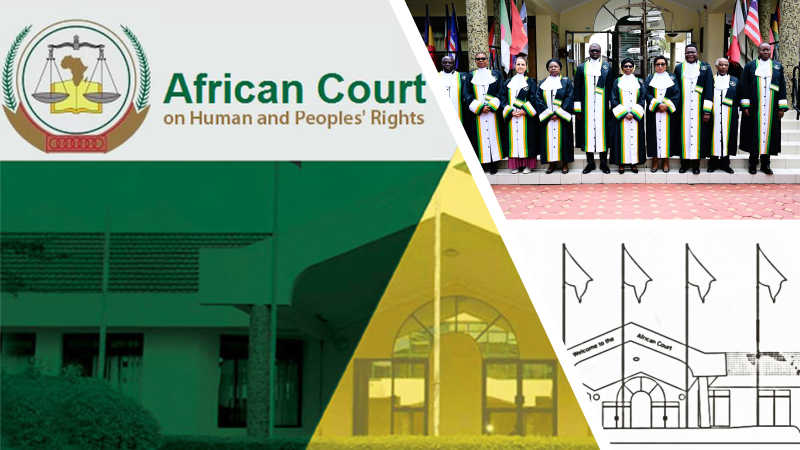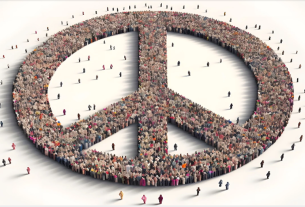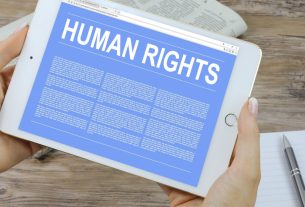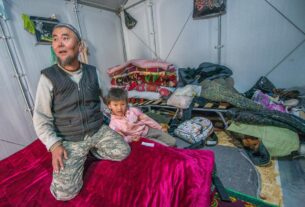‘See you in Court’: Ramifications of Climate Change Litigation before the African Court on Human and Peoples’ Rights
I had the pleasure to present my article, published in the Journal of Human Rights Practice, at the Symposium on African Perspectives on International Climate Change Law on 29 March 2024. Climate litigation has been widespread across domestic, regional and international courts as acts of public interest litigation. With my co-author Marie Fall, we were curious to explore the prospects of the African Court on Human and Peoples’ Rights (ACtHPR) as a theatre for climate litigation that would be instigated by individuals or NGOs. In this brief publication, I discuss the prospects and pitfalls of both contentious and advisory proceedings before the ACtHPR.
Contentious climate proceedings before the ACtHPR
Targeting one state in contentious litigation would produce a binding judgment, signal an important message to other countries on the continent and further propel the climate litigation snowball effect across the globe. Individuals or NGOs could claim several human rights violations from the African Charter drawing their connection to climate harm (as others have done before the European Court of Human Rights, for example), and/or refer to the human right to a healthy environment (Article 24 African Charter).
So, could individuals or NGOs sue states before the African Court? Individuals and NGOs may sue for collective harms as per Article 5 (3) of the ACtHPR Protocol (e.g., The Nubian Community in Kenya v. Kenya 2015) and are not even required to be victims of the relevant human rights violation(s). This makes the ACtHPR a particularly attractive venue for climate litigation. Furthermore, proving the existence of a causal link between the State’s (in)action and climate change on one hand, and between climate change and the violation of the individual’s human rights on the other hand, would not be challenging given the development of climate science referred to by courts and quasi-judicial bodies (e.g., in Sacchi v Argentina). Further, individuals or NGOs must exhaust domestic remedies as attempts to bypass this stage due to the climate emergency have caused failures in both Sacchi v Argentina (UN Committee on the Rights of the Child) and Duarte Agostinho and Others v Portugal and Others (European Court of Human Rights).
Rather, there are limitations with respect to who could be sued. While Africa only emits under 4% of greenhouse gases worldwide, certain African states such as South Africa are still in the top 20 biggest polluters worldwide and countries like South Africa, Egypt and Algeria are still considered to emit excess greenhouse gases. Yet, there are only 34 state parties to the Protocol to the African Charter recognising the jurisdiction of the ACtHPR, and out of these only 8 states parties have made special declarations allowing both individuals and NGOs to sue them – none of which are the highest polluters. Recent withdrawals of such special declarations by Côte d’Ivoire, Tanzania, and Benin are unlikely to inspire other states to ‘sign up’.
An advisory opinion of the ACtHPR: right place, right time?
There has been a surge of requests for advisory opinions on climate change-related matters before the Inter-American Court of Human Rights, the International Tribunal for the Law of the Sea and the International Court of Justice. So, what would an additional advisory opinion add before the ACtHPR? It could provide advice catered to African countries in light of the principle of common but differentiated responsibilities. While the ICJ will render an advisory opinion on states’ climate change obligations, the nature of the question and the modest participation of African states (12 plus the African Union) means that the opinion will be less likely to place emphasis on the obligations that are particular to African states in the wider climate context.
One could argue that the non-binding nature of advisory opinions makes such a pursuit futile. However, such an opinion can influence domestic law and policymaking, lead to compliance with rules recalled in the opinion and prompt changes in state behaviour. Rather, the challenge in the advisory context relates to the jurisdictional limitations placed on NGOs. While they are authorised to request such opinions, only those with special recognition from the African Union and meeting a stringent set of criteria can do so. Partly for this reason, many requests by NGOs have been rejected in the past.
The bottom line
Overall, I am optimistic. While one must be cautious of the time it could take for individuals or NGOs to successfully seize a state in a contentious dispute, and the choices of states are more limited, it would still be a valuable measure signalling an important message about climate justice in Africa and around the world. Similarly, an advisory opinion could further guide African states on obligations and responsibilities particular to them, to compliment other international advisory opinions. In the coming years, science tells us that Africa will disproportionately carry the impact of climate change through sea-level rise flooding (e.g., coastal cities in East and West Africa, as well as along the Nile Delta) and drought, leading to increased loss in agriculture leading to famine and migration. Individuals and NGOs in the African continent have avenues available to them to take action and ensure that Africa remains a central part of global movements and conversations about climate.
Yusra Suedi is a Lecturer in International Law at the University of Manchester. She holds a doctorate in International Law from the University of Geneva for The Individual in the Law and Practice of the International Court of Justice (forthcoming with CUP). Yusra has worked for the United Nations, international courts and tribunals and in cases before the International Court of Justice.
Acknowledgments: Thanks to Eleanor Parkinson and Ireoluwatomiwa Fagbemi for their assistance, and to Marie Fall for co-authoring the article upon which this Reflections piece is based.
Views expressed on Harvard Human Rights Reflections are those of the individual authors and do not necessarily reflect the opinions or positions of the Human Rights Program or Harvard Law School.



